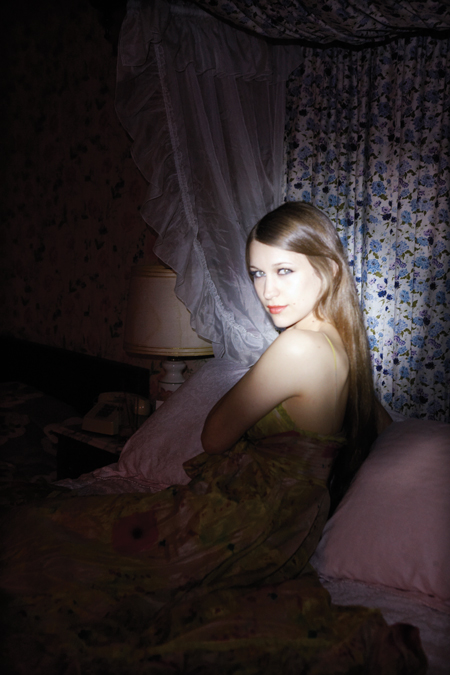Videos by American Songwriter
Joanna Newsom stunned everyone with her third album, Have One On Me, which is simultaneously her most accessible work, and, at two hours long, her most challenging. We chatted with one of rock music’s most creative minds to find out what makes her tick.
You’ve said there’s a loose theme to Have One On Me. If you could describe the story being told in a sentence, what would it be?
It would be the title of the record, in the imperative mood.
Most of the songs are over five minutes long, and the longest is 11 minutes. Do you worry that some fans might not have patience or time to make it through the whole thing?
Yeah, I do worry about that. I guess you have to be in the right mood to get into it. And certain folks never get in that mood.
What’s a song you’re particularly proud of on the album, and why?
“Does Not Suffice,” I think. And “On A Good Day.” Simplicity is sometimes hardest for me.
Which songs came first on the record? Were they all written post-Ys?
I started “Kingfisher” sometime between when I recorded “Ys” and when the album came out. And I remember writing the instrumental part to “Have One On Me” on a big old beautiful grand piano in the Sear Sound studio, in New York, while Jim O’Rourke was observing his monastic session of solitary “Ys” mixing, and I was waiting to be let back in the room.
Do you typically write songs on the harp?
For this album, for the first time ever, I decided to write the bulk of the songs on the piano. I’m not a very good piano player, and so I thought it would be an interesting exercise, to write songs on an instrument that absolved me of any obligation to do something interesting with my hands. I wanted to focus on the bones of the songs – the melodies and chords. Sometimes, with the harp, I can get carried away thinking about instrumental arrangements before the songs even know what they are, which ends up producing sort of frenetic, abstract work, with the fussiness of a premature infancy. I wanted these songs to be measured and solid, pitched low and heavy. Then, once they were sketched out, I switched back to the harp, to fill in the instrumental details.
When did you start writing songs? What were they like? Were they more “conventional,” less, or the same?
I was a little kid when I first started writing songs. So the songs were kid songs, in the beginning. I wrote a lot about weather patterns and animals. Then there was a long dry spell, between about age ten and age seventeen, when I didn’t write songs with words and singing anymore; I only wrote instrumental songs. On the back end of that period, in my late teens, the instrumentals sorta resembled my second record, “Ys,” except, as I said, that they didn’t have any singing at that point.
Are there any particular words you love, or hate?
I’ve always loved “derelict,” for its accidental diversity and poeticism of meaning, in adjectival and noun form.
You’ve said for Ys, you pored over every syllable before it was finished.
Well, I was in a mathematical frame of mind, I think. Not real math, but intuitive math – a kind of idle, self-soothing impulse, like making sure all three Dixie cups have the same number of dry pinto beans in them. That impulse didn’t govern the meanings of the songs, or the spirit of the record, but somehow I needed it – I needed that syntactic hyper-vigilance, to act as a mill through which all those songs had to pass in order for the record to find itself.
You prefer not to discuss your lyrics too much, instead letting your audience draw their own conclusions. Why is that? Wouldn’t it be interesting for them to know the stories behind the songs?
Maybe less interesting than you’d think.
Is your lyric and music writing style “automatic”?
I think it’s automatic, but not fixed. It changes over time, as I change. Like any creative impulse, it’s a product both of the essential self and of the changing environment.
Do you write the lyrics separately from the music?
These last few years, I’ve found that I write lyrics based on the music, prompted by it. But when I first started writing the songs for the first album, I would begin with lyrics, and then try to set them to music.
You’ve said you’re an insomniac. Do you write or make music a lot during those early morning hours?
I like to think I do. But the hours have a degrading effect on the mind as they roll along. I do better work early in the evening, before I get too loopy.
Do you have any musical goals you haven’t explored yet?
There’s some music theory stuff that I wish I were better at. And, someday, I’d like to revisit the trickier classical repertoire that I’d begun amassing in my late teens and early twenties, which I then sort of dropped, along the way.














Leave a Reply
Only members can comment. Become a member. Already a member? Log in.